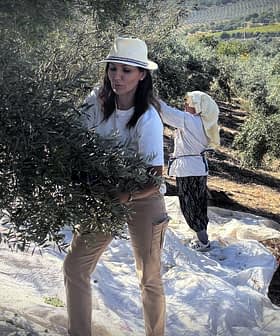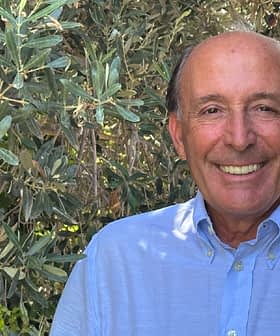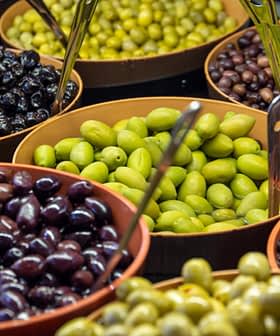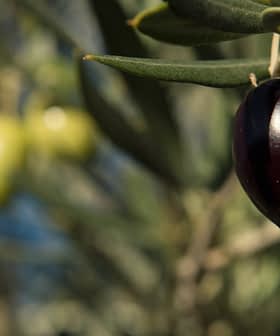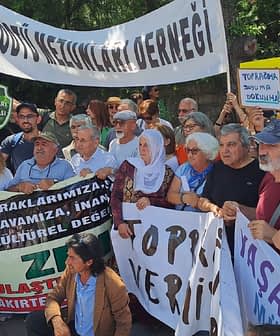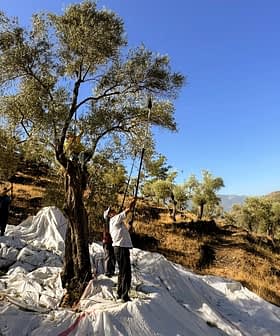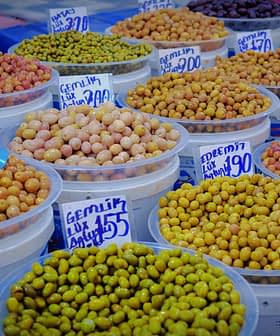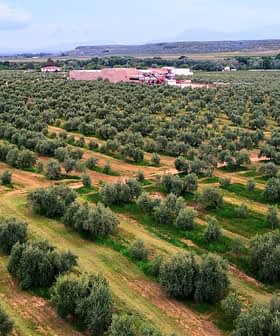Preserving Olive Oil Culture in Adatepe
Adatepe, a village in Turkey famous for its olives and olive oil, is home to the Adatepe Olive Oil Museum and the Adatepe Olive Oil company. The company, founded by Mustafa Çakılcıoğlu, focuses on traditional olive oil production methods and aims to preserve the cultural history of olive oil in Turkey. The company’s logo, “Refika,” is inspired by a legendary beauty from the village’s history, and they plan to expand their product offerings in the future.
by Umut Egitimci
Olive Oil Times Contributor | Reporting from Istanbul
I remember my first time in Adatepe … discovering the Altar of Zeus, a breathtaking view, beautiful old stone houses and the delicious olive oil. Described in Homer’s Iliad, this beautiful village lying at the western slopes of Mount Ida, overlooking the Aegean Sea and Lesbos Island, is most famous for its olives and olive oil. Over the years, I returned to Adatepe, tasted more of that famous olive oil and visited Turkey’s one and only olive oil museum. The founders of this museum were also the founders of Adatepe Olive Oil and the beautiful logo of “Refika.” Today one of the company partners, Mr. Mustafa Çakılcıoğlu, agreed to answer some questions for the Olive Oil Times.
How did you start to produce olive oil in Adatepe?
We were inspired by the lovely chats we had with the olive oil producers in Adatepe. These chats that lasted for hours, sometimes all night long, introduced us the world of olive to us. We thought of this world’s deep-rooted traditions, rich culture and bright future and that’s how we got into olive business. Shortly after, we realized the importance of controlling the entire production process in order to produce high quality olive oil and we bought a factory that works with traditional methods. After making some improvements in the factory, we started producing. Adatepe Olive Oil is produced only by traditional crushing and extraction methods. Our mill, left for some time, was recently restored to EU hygiene standards. Organically grown olives, hand picked from our family estate are brought to our mill within 12 hours. They are crushed in granite stone mills and start releasing their first golden drops of olive oil even before being extracted.
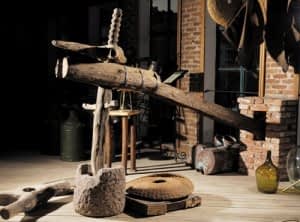 And you have also founded Turkey’s first and only olive oil museum. How did it happen?
And you have also founded Turkey’s first and only olive oil museum. How did it happen?
We have witnessed that thousands years old olive culture was in process for a great transformation, because the factories working with traditional methods were closing down one after another. We wanted to collect samples of this culture before it gets lost totally, in order to preserve and pass it on to future generations. Because of this reason, we decided to establish an olive oil museum here. As you’ve mentioned, Adatepe Olive Oil Museum is Turkey’s first and only olive oil museum, which opened in July 2001. Although, olive production dates back to pre-historic times in Turkey, much of its history is being forgotten in modern times. The goal of the Adatepe Olive Oil Museum is to preserve the literary and visual history of olive oil production in Turkey, or as it was previously called, Anatolia.
We have restored an abandoned antique soap factory building in Kucukkuyu county of Canakkale province, and re-designed it to serve as a traditional cold press olive oil factory. If you get a chance to visit it, you can be amazed at the very simple procedure of olive oil extraction by the traditional methods. On the large factory site, one can see large and small objects impressively displayed, such as huge granite stone mills for grinding the olives, antique olive presses belonging to different periods of history, numerous tools for pruning, olive picking as well as carrying baskets and earthenware jars for olive oil storage, amphoras from sunken ships of early trade throughout the Mediterranean, the huge oven and the bowl for soap making, knives and stamps for hand made pure olive oil soaps, olive oil lambs, and various labels of the local producers.
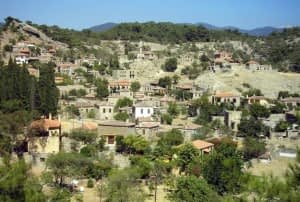 And what makes Adatepe Olive Oil special in the industry?
And what makes Adatepe Olive Oil special in the industry?
The area around Küçükkuyu and Adatepe village is already well-known for its high-quality olive oil production in Turkey. We are trying to push the upper limits for high quality as well as create a product that offers a combination of this quality and a visuality which is a reminiscent of a life style. We aim to remind how special and well-qualified olive oil is to the wide crowds as well as endear it. I mean, our efforts are not only for selling our product, but more importantly, to introduce olive oil to everybody, in order to increase the consumption of olive oil.
What kind of marketing strategies you have for this goal?
Abroad, we only co-operate with the firms that puts quality and our own brand in the foreground. In Turkey, we choose the exclusive restaurants which only aims to offer the best to their customers and we also sell directly to our customers via phone or internet.
Can you please describe your customer profile?
We believe our customers who prefer Adatape products, are conscious about the quality and have a tasteful life style gusto.
 What’s the story behind your company logo “Refika”?
What’s the story behind your company logo “Refika”?
“Refika”, was a legendary beauty that lived in the village of Adatepe where the Greek and Turkish populations co-existed towards the end of 19th, and the beginning of the 20th centuries. Despite her Greek origin, her grace and joyfulness had made her beloved by the Turkish community as well. She sang cheerfully and danced beautifully during wedding parties and at all festivals. Her graceful beauty and generosity had been legendary not only in Adatepe but also extended far beyond to neighboring villages. Especially during the olive harvest season, it was a real treat for her fellow villagers to work in the same grove where she picked olives while singing cheerfully or chatting with them. Both communities continued to live peacefully until the Greek occupation of the region at the end of World War I. Unfortunately, the war had provoked hostility between the two communities.
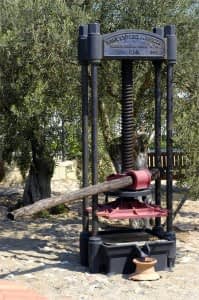 So, as a consequence of a population exchange agreement between the two governments, Refika, who has always had a special place in the hearts of the Turkish villagers, had to leave Adatepe. Her absence in Adatepe caused such great sorrow that the young men of the village composed a ballad in her name. It has been a tradition in Adatepe to sing her ballad and dance on the occasion of a wedding party or a local festivity. Her story, told by the elders of the village, touched us very deeply. Hearing more legends about her, like settling in Chios and winning the first beauty contest and more, have led our way to this little island to trace her footsteps.
So, as a consequence of a population exchange agreement between the two governments, Refika, who has always had a special place in the hearts of the Turkish villagers, had to leave Adatepe. Her absence in Adatepe caused such great sorrow that the young men of the village composed a ballad in her name. It has been a tradition in Adatepe to sing her ballad and dance on the occasion of a wedding party or a local festivity. Her story, told by the elders of the village, touched us very deeply. Hearing more legends about her, like settling in Chios and winning the first beauty contest and more, have led our way to this little island to trace her footsteps.
We could not find any sound evidence of her existence there, but a framed picture we happened to find in an antique shop made us think, ‘Why not?’ … Her beauty and the naïve look on her face along with an Ottoman hairdressing style tempted us to believe it could be her. When the elders of our village nodded their heads and with astonished eyes almost crying said, ‘Definitely, it is her’, we believed once more that Refika is still alive in the imagination of our villagers. Thus, we decided to preserve her image and name on our label as a symbol of beauty and goodness, which Adatepe Olive Oil gives to people.
She really is beautiful and the story is very touching…And as a last question, can you tell us what are your future plans for company development?
 All of our efforts are for offering better products to our customers who have been supporting us over the years. We are aware that the only way to achieve this goal, is to improve quality and that’s why we constantly work to make it better. At the moment, we are producing olives, olive oil and traditional olive oil soaps. We have unscented soaps as well as olive oil soaps with lavender, rosemary, cedar essences. We are also aiming to offer more diverse products in the upcoming years.
All of our efforts are for offering better products to our customers who have been supporting us over the years. We are aware that the only way to achieve this goal, is to improve quality and that’s why we constantly work to make it better. At the moment, we are producing olives, olive oil and traditional olive oil soaps. We have unscented soaps as well as olive oil soaps with lavender, rosemary, cedar essences. We are also aiming to offer more diverse products in the upcoming years.
Thank you so much for this interview.
Thanks for your interest in Adatepe. Hope everybody who gets a chance to visit Turkey, will come and visit our beautiful village and share this delightful ambiance while tasting our delicious olive oil.



